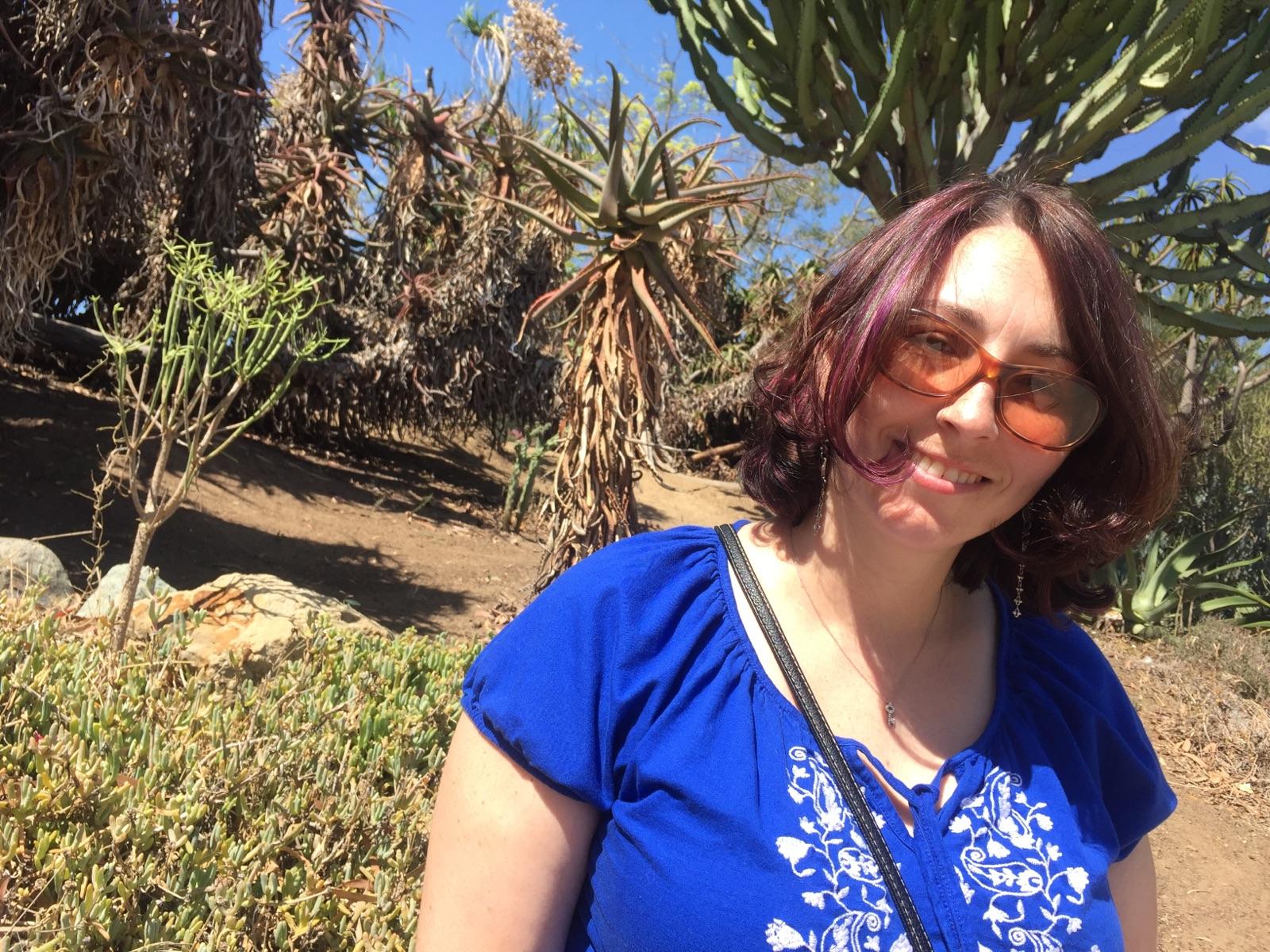
Elyse Walk, Ph.D.
Compliance Manager | Explora BioLabs

- Interview Overview
Interview Overview
Interviews and Editing by: Alexandra Bortnick
Interview: October 2017
Transition: June 2017
1. Please list your previous department at UC San Diego and provide a brief description of the research you conducted?
I started my postdoc in the Pathology Department, and was there for about 10 months before moving into a Staff Research Associate 2 position in the Department of Medicine. In my short post-doc, I studied the effects of knockout of PEAK1 on pancreatitis and pancreatic cancer development. I also did some lab management and safety.
As a Staff Research Associate, the main part of my job was husbandry and management of a large mouse colony for use in Type 2 diabetes studies. I performed all breeding and genotyping, organized mice into cohorts for studies, and dosed mice during experiments. I also helped with necropsy.
2. Please describe your current job profile?
My current job is as a Compliance Manager at the Contract Research Organization, Explora BioLabs. The company provides preclinical research services to the Biotech and Pharmaceutical industry. As of now, I am in charge of helping clients write and amend their Animal Care and Use Protocols for IACUC and help to put together study protocols for new clients and studies. Eventually, I will be taking over positions as Safety and IACUC Chair as I learn more about the company.
3. What made you decide to transition into your current position?
I knew pretty much right away after starting my post-doc that an academic career was not for me. I started out in an academic position, hoping I could increase my skillset a little more, but really it was not a good fit for me. I moved into a SRA2 position, with hopes of eventually moving into industry. It took another year and a half before that happened, but I gained additional valuable skills that helped me obtain my current position.
4. Apart from the research you conducted, do you feel like anything in particular has helped you acquire your current position?
Skills such as writing animal protocols and learning lab management definitely helped, as well has taking on students during my graduate years and during my SRA2 position. I also think it is really important for scientists to have good verbal communication and social skills. I have done a lot of work with an extracurricular social group since moving to San Diego and that has made it easier to converse with people outside of the realm of science.
5. Please list some of the most striking similarities and differences between your postdoc and current position?
I’d say the only thing similar is the fact that I’m learning about different techniques performed in mice. There are many more differences. I don’t work in the lab currently, I don’t handle mice, and I deal with clients almost on a daily basis.
6. Is there any specific challenge (during the entire process of transitioning) that you would like to highlight and, if so, how did you overcome it?
I’ve had to hone my communication skills, and work to focus on clients. Instead of thinking about my own research, I have to focus on what they need. Also, there is much more quality control in industry. You have to be trained and qualified on techniques (even pipetting!) before you are trusted to do work on your own.
7. Please describe your goals and ambitions for the next 5 years?
Over the next 5 years, I’d like to learn more about project management, and will hopefully be taking extra courses through UCSD Extension. I’m hoping to learn more about the drug development process, and anything that can increase my knowledge of the various regulations involved in pre-clinical and clinical trials.
8. What do you feel you could have done more, as a postdoc, to help prepare you for or acquire your current position?
Networking! Lots and lots of networking, and following up on contacts. It’s important to not just make contacts, but to keep in touch.
9. What do you feel is the most important advice you can give to a current UCSD postdoc in order for them to obtain a position such as yours?
Stay vigilant. It might take some time, but you will get where you want to be eventually. Also, don’t be afraid of "temp-to-hire" positions. It’s a little bit of a risk, but it will get your foot in the door to industry, and that experience is important to get.
